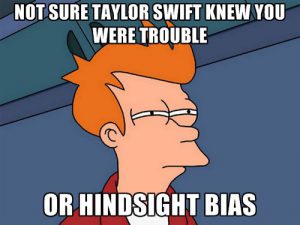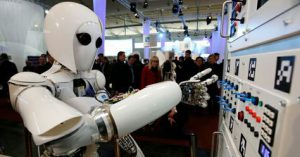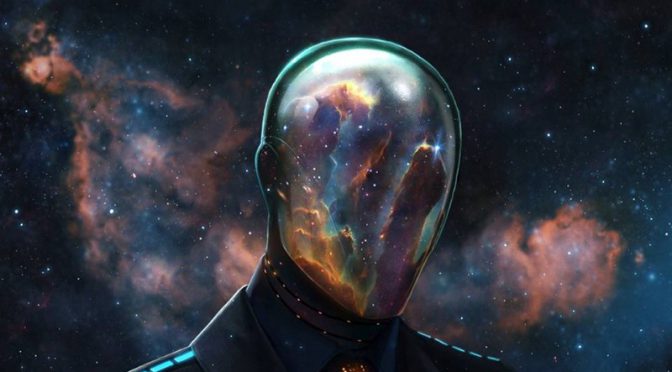One of the things that unites speculative fiction genres is dealing with a world that’s different from our own in ways that seem impossible. With fantasy the line is easily drawn, we know that there aren’t actually wizards or dragons no matter how much we want to believe. But with science fiction there’s always this grey area where we’re not entirely sure just what is and isn’t really possible. It’s that grey area that gives the genre its unique flavor as we explore worlds that seem completely insane but still have that vague sense of truth to them. In essence, when you describe something in science fiction as not possible you can always feel that lingering sense of “yet”.
It’s because of this that I’ve always been a big fan of Clarke’s laws – particularly the third law. According to Arthur C. Clarke, sci-fi author and futurist responsible for stories like 2001: A Space Odyssey, any technology sufficiently advanced is indistinguishable from magic. It may sound like an easy excuse for writing impossible things and calling them scientific, but when you think about the real world you realize it’s surprisingly accurate. To this day there are people who believe everything that NASA does is an elaborate hoax because, to them, everything NASA does seems impossible. Even people who do trust in science will doubt some things are possible just because a theory sounds insane despite evidence.
And one of the most interesting aspects of this concept as a speculative fiction writer is that some of those theories may shape our future. We can’t be entirely sure which will actually happen, but we know that the world of the future will be drastically different from the world of today. In fact, in academic circles they say that we may one day hit a “technological singularity” – a point at which technology has advanced so far that society would be near unrecognizable to us. Some people have a hard time wrapping their heads around that, but anyone who reads this right now is doing so through a device that would have been considered witchcraft a thousand years ago. So how is it that we can have experienced such dramatic changes and yet still feel like things can’t go further?
For that, we have to talk about swans…
Deceptively Obvious

Animals have long been used as symbols for various ideas. Unicorns, dragons, griffons, and lions have all been found in heraldry and represented different virtues or ideas. But one creature that was included in symbolism in poetry and art was a creature meant to define the impossible: a black swan. Swans were invariably white in the real world, so it made sense when writers and artists depicted these creatures as an unnatural black color that they were signifying an impossibility. And this tradition continued for millennia until about 1697 when Willem de Vlamingh, a Dutch explorer, happened to find something pretty curious in Australia.

The black swan, thought to be just this side of mythology, was actually real. As silly as it sounds, this was a pretty earth-shattering moment. To put it into a modern perspective: imagine if we found out tomorrow that Sasquatch was real and that all those debunked videos and footprints were legit. All of a sudden a lot of things you believed in would be brought into question and that’s exactly what happened to people back in the early 18th century when Vlamingh came back with the news. From then on, though the symbol continued to exist, it now represented something entirely different – the risk of accepting something as fact simply because that’s the conventional wisdom.
But in 2007 that symbol was taken a step further by scholar Nassim Nicholas Taleb when he proposed the idea of a “black swan event”. The black swan event is an event which was previously unpredictable, made a tremendous impact, and in hindsight seems deceptively obvious to the point that we may take it for granted today. Fittingly, he published his book on the subject mere months before the start of the Great Recession in the summer of 2007 as the subprime mortgage bubble started to burst. And, just like his book said, that burst was unforeseen, left a tremendous impact, and in hindsight seems like it should have been really fucking obvious.

But black swan events don’t just happen in finance, they also happen in science and technology. If you have a cellphone in your hand right now, you’re holding a device which is made of several black swans all at once. Personal computers and radio transmitters were both arguably black swan events as the idea of a computer smaller than a room was insane no more than a century ago and radio waves were discovered by accident during experiments with electricity. Yet today, with the benefit of hindsight, these technologies seem like a foregone conclusion – something that people would have inevitably discovered eventually. And because it feels so obvious in hindsight we have a hard time not taking them for granted like that.
So, taking this into consideration leads to an amusing observation – by certain interpretations, the technological singularities of today are the black swans of tomorrow.
Now this isn’t true of the common academic interpretation of the technological singularity. In academic circles the singularity is a very specific event dealing with artificial intelligence that people make predictions and projections on all the time. In this specific interpretation the singularity is the point when artificial intelligence has advanced enough that it doesn’t need us anymore. Once it becomes this advanced it would theoretically begin to develop new technology faster than we could, resulting in an explosion of innovation that would reshape civilization. Now we don’t know exactly when and where this is going to happen, but people are working towards it all the time and making some pretty good educated guesses based on their work. So, while it would meet two of the criteria of a black swan – people still know it’s coming.

But a second interpretation of the technological singularity, a somewhat looser one, is any development in science or technology which profoundly reshapes the future of civilization. This interpretation is particularly popular in science fiction because it leaves open so many possibilites. While it’s true that a lot of works involve the more academic singularity, the more open interpretation has formed the foundations for entire subgenres in one way or another. One of the most famous examples of this is the Warp Drive from Star Trek. Though not having anything to do with A.I. and not resulting specifically in that explosion of innovation, the discovery of Warp leads to a complete reshaping of civilization and an array of new technologies that wouldn’t have been discovered otherwise. Transporters, subspace communicators, and force-fields are all equally fantastic technologies and all of them were developed because warp drive paved the way. So, while not following the exact letter of the singularity, such concepts certainly follow the *spirit* of the singularity.
And there are so many technologies and scientific fields that have this sort of earthshaking potential. From the likes of advanced cybernetics to genetic engineering, there are an array of developments being worked on today which could reshape our future. How does society function if we can control our very genome? What is the impact on people if we’ve eliminated disease and old age? Where’s the line between man and machine if the two can be blended? These are the kinds of questions that form the very backbone of the genre and all of them are centered on this loose interpretation of the singularity.
But until these things actually become a part of our real world, a lot of them will follow Clarke’s third law. Despite our educated guesses and the work being put into the subjects, they remain practically indistinguishable from magic for many people. In fact, because of the unpredictable nature of some developments, even things which may currently seem impossible can’t be entirely ruled out within the realm of scifi regardless of people’s protests to the contrary. Because, while some things may seem fairly implausible, we should always be careful that what we say is “impossible” today…
Doesn’t end up the black swan of tomorrow.
(I write novels and dabble in screenplays. Follow me on twitter, another thing no one really saw coming, to get updates on what I’m doing and see some of the impossible worlds I’ve created.)







